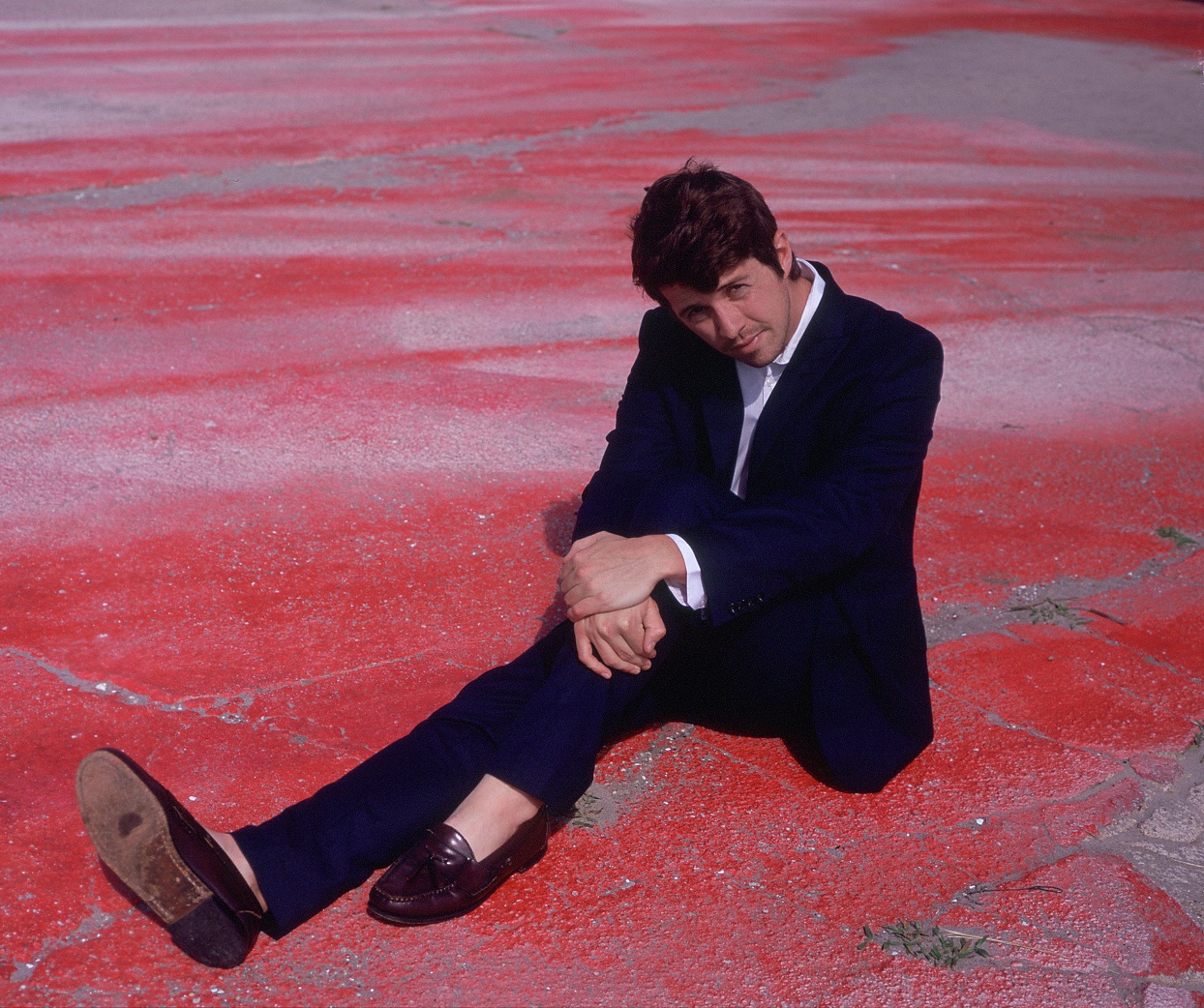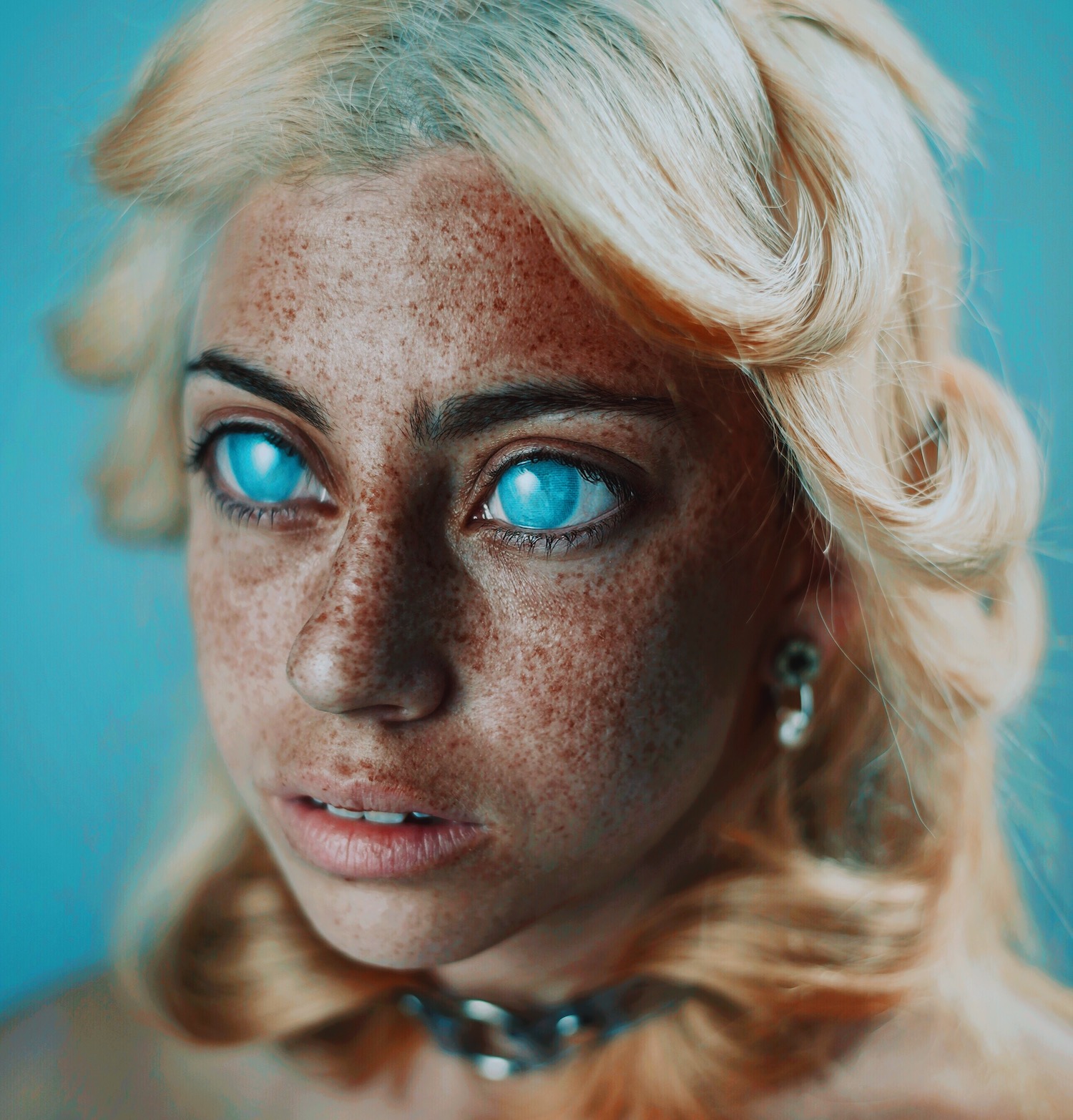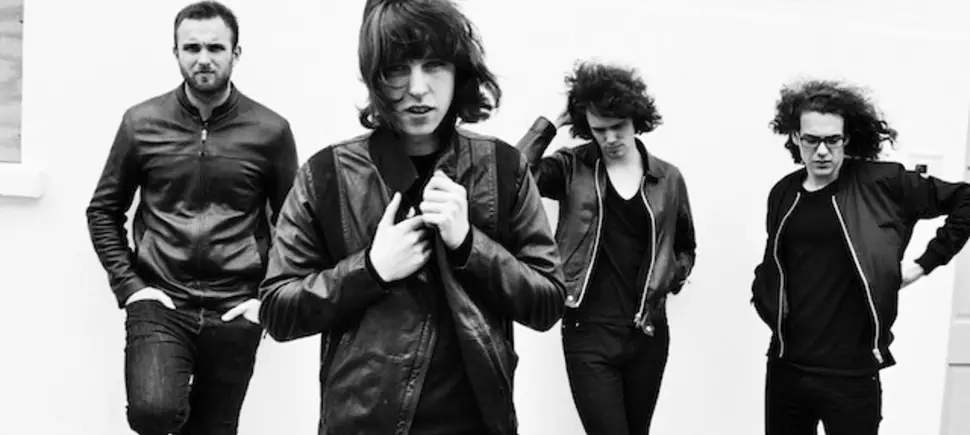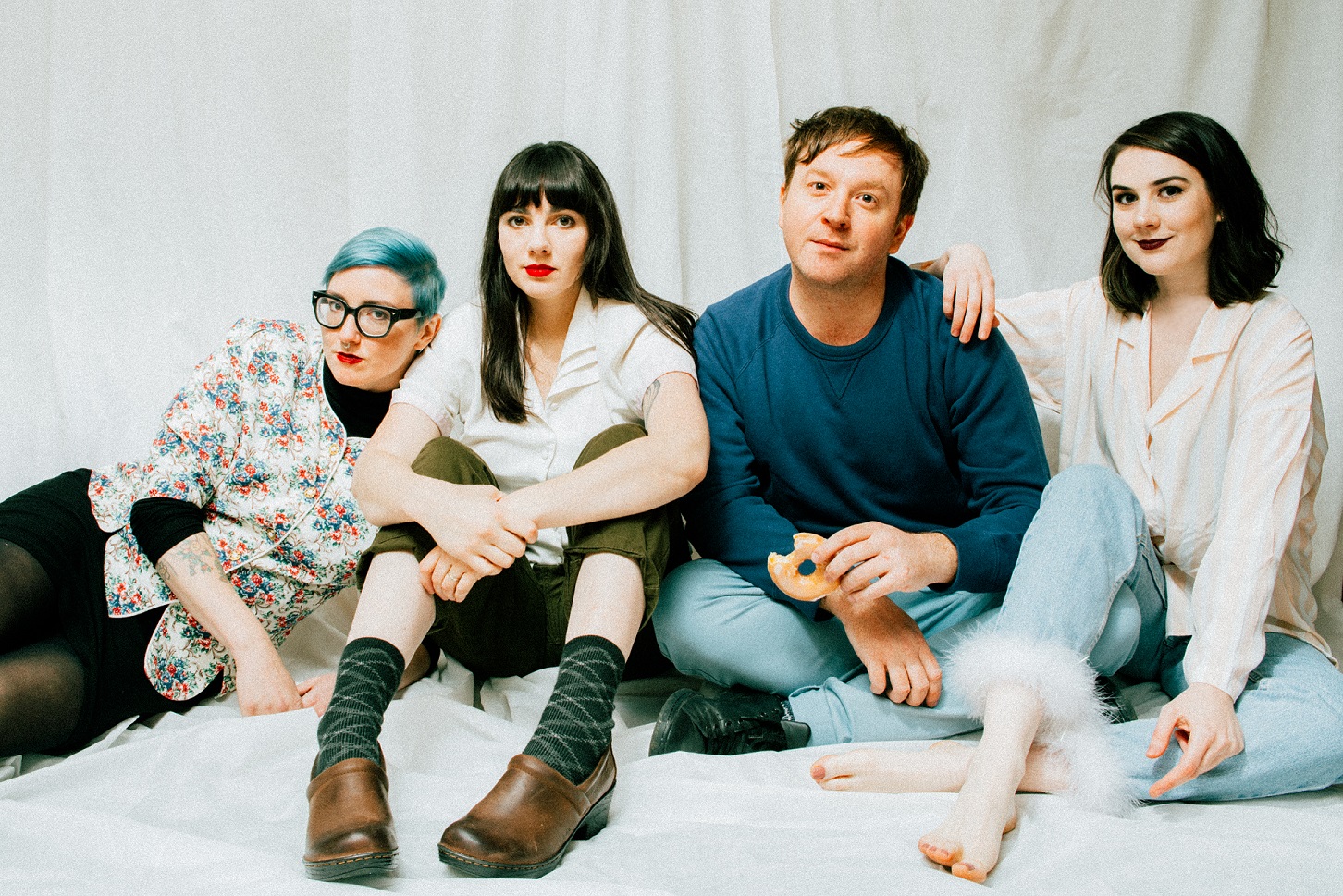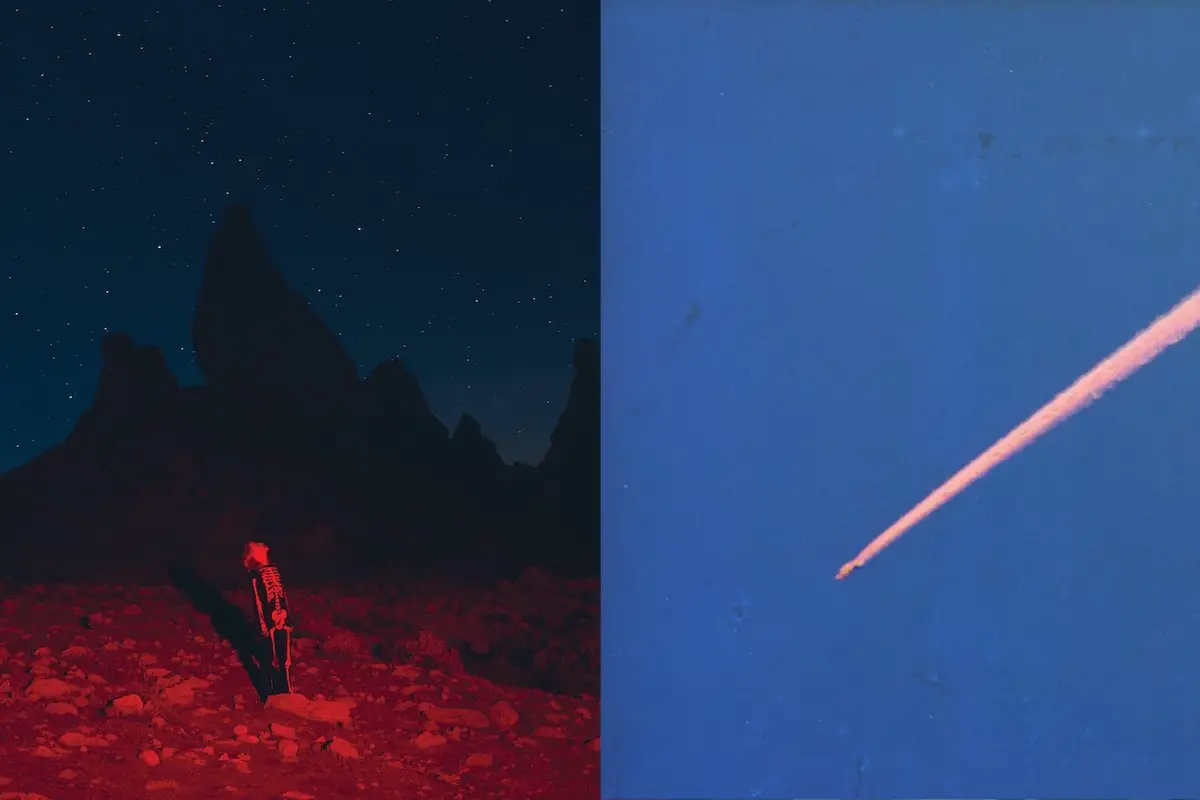Naturally introspective and painfully self-aware, singer/songwriter Charli Adams is learning to live more unapologetically. Her captivating debut album ‘Bullseye’ is the breathtaking soundtrack to her very own liberation: An intimate, vulnerable, and utterly timeless coming-of-age record, it introduces Adams while setting her apart as a singular force driven by passion and purpose.
Stream: ‘Bullseye’ – Charli Adams
Music has always been the driving healer for me. When I hear a song that I feel completely seen by, it changes things for me and it makes me feel just so comforted.
Her friends call her Bullseye, and now you can, too.
A vulnerable, visceral, and altogether enthralling experience, Charli Adams’ debut album is as radiant as it is raw. Released in mid-2021 via Color Study / Ultra Records, the beautifully intimate and intense Bullseye hits all the marks as an emotionally potent, lyrically powerful, and musically catchy record of self-reflection and discovery, capturing the Nashville-based artist’s coming-of-age through songs of reckoning, yearning, celebration, and growth. A stunning forty-minute confessional, its songs resonate as much now as they did upon the record’s introduction, each track an evergreen, moving piece of therapeutic songwriting from an artist in the throes of her own transformation.
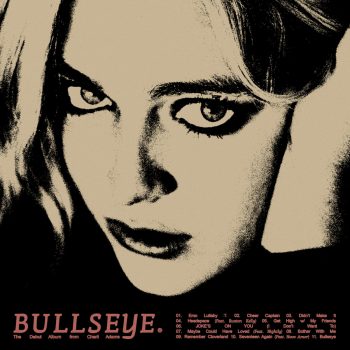
We talked on the phone, but we didn’t
You never did say sorry,
but I always hoped that you meant it
And I was a kid, picked all the pieces
Ended up with stained glass and a portrait of Jesus
And I don’t need to ask you
where you’ve been, I’m older now
And I can tell you weren’t cut out for this
And couldn’t figure it out
Man of the house with the man in the sky
I’m dizzy, I keep falling for the wrong guy
Man up, I wanted to see you try
But I’m not surprised
Eye on the prize, you can call me Bullseye
– “Bullseye,” Charli Adams
“I don’t even recognize the person before this album was written,” Adams tells Atwood Magazine. “There was such an acceptance of self throughout this, and I’m excited for the future because it’s been such a short time. It’s been such a short span of experiencing this kind of liberation, and I’m still learning it… I feel more human now. The theme that I’ve been trying to follow is acceptance, with accepting how you are at that moment and that you are human and you have limits, and that you also have so much to give at the same time, and to not hold yourself back from that.”
I want everything to be as dramatic and movie-like as possible, and I want people to listen to it and know how serious it is to me.
In a word, Charli Adams is uncompromising.
Few stones are left unturned on Bullseye as the singer/songwriter – an Editor’s Pick, and one of Atwood Magazine’s longtime artists to watch – delves into the often fraught, deeply personal depths of herself and her psyche, taking with her past and present relationships, faults and follies, anxiety and insecurities, her own experiences with therapy, family, friends, religion, and so much more. From the aching opener “Emo Lullaby :'(” and the unapologetic alternative anthem “Cheer Captain,” to more dynamic overhauls like “Didn’t Make It,” “Get High w/ My Friends,” and “Remember Cloverland,” Bullseye makes it feel good to bask in our own sweet surrender.
Collaborations with Ruston Kelly (“Headspace”), Nightly (“Maybe Could Have Loved”), and Novo Amor (“Seventeen Again”) add further flavor to this enchanting soundtrack to self-actualization. “I think I sound like a crazy witch, I know it, but I swear I manifest what I listen to into my life, because these were all people that I listen to just religiously,” Adams says of these partnerships.
I ranted to a stranger at some upscale downtown bar
They didn’t have much to say, but they looked like a movie star
But they didn’t know you, hell I don’t know if I do
After six years of being stupid in love with you
and when you got down, I was speeding like a fool
Thinking I could save you like I’m the exception to the rule
I stood at the door of your place
Wondering how to get out of this headspace
So I drove until my body gave out
I was screaming out the window till no sound
was coming out
You and I we burned it to the ground
– “Headspace,” Charli Adams
While these features all prove striking additions to her album’s rich color and harmonic contours, ultimately it’s Charli Adams’ own profound depths that propel Bullseye to great heights, ensuring it hits home with all who listen.
“It’s basically me unpacking my upbringing, and all kinds of things that I’ve not talked about, so it’s pretty surreal to compile that. It’s like a journal for me, too,” Adams says of her album. “It was written before and after a lot of realizations and a lot of changes that I had to implement into my life to be happy. And because I was in a lot of toxic cycles, I just had a lot of lessons to learn…”
If Bullseye is just a series of lessons learned the hard way – and in truth, it’s so much more than that – then perhaps the most important, overarching lesson of all is to let go of our worries, get out of our heads, be ourselves, and own our truths.
“I’m learning the lesson to just show up the best that you can, where you’re at in the moment, and not to be too hard on yourself,” Adams reflects candidly. “The unapologetic attitude is something I have to constantly remind myself to have, and remind myself that I’m human and unapologetic, and that it’s okay to express yourself the way that you are, and that’s something I’m learning right now.”
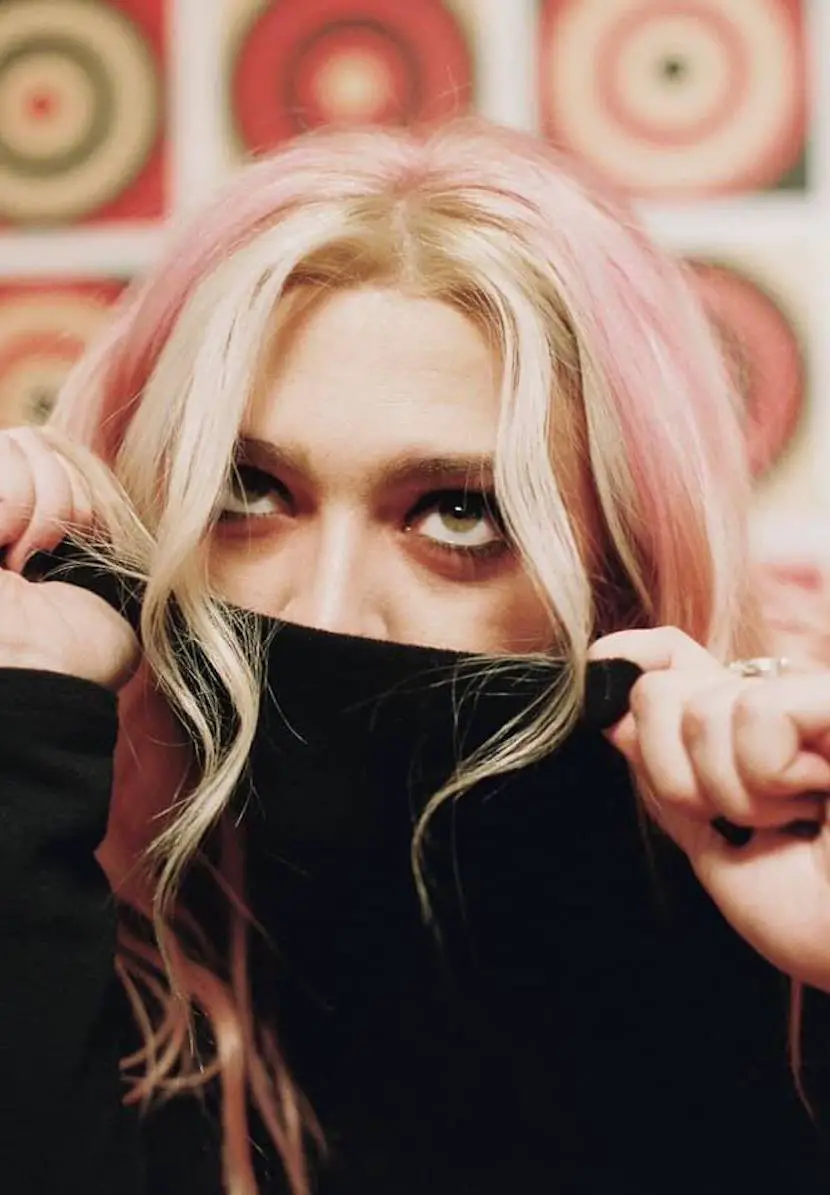
Charli Adams dove deep into her debut album in an intimate, honest, and in-depth conversation with Atwood Magazine.
Bulleye may be eighteen months old at the time of this writing, but its songs are absolutely timeless and universally relatable – as fresh today as they were upon the album’s initial release. As catchy as it is cathartic, Adams’ music is the perfect soundtrack to everything from an intense inner reckoning session alone with yourself and your thoughts, to a fun, easy night getting high with your friends.
Some albums just hit all the right notes – and true to its name, this one is a definitive Bullseye. Dive into this record and more in our very special interview as Charli Adams opens up about her ongoing journey of empowerment and learning to live unapologetically.
— —
:: stream/purchase Bullseye here ::
— —
Stream: ‘Bullseye’ – Charli Adams
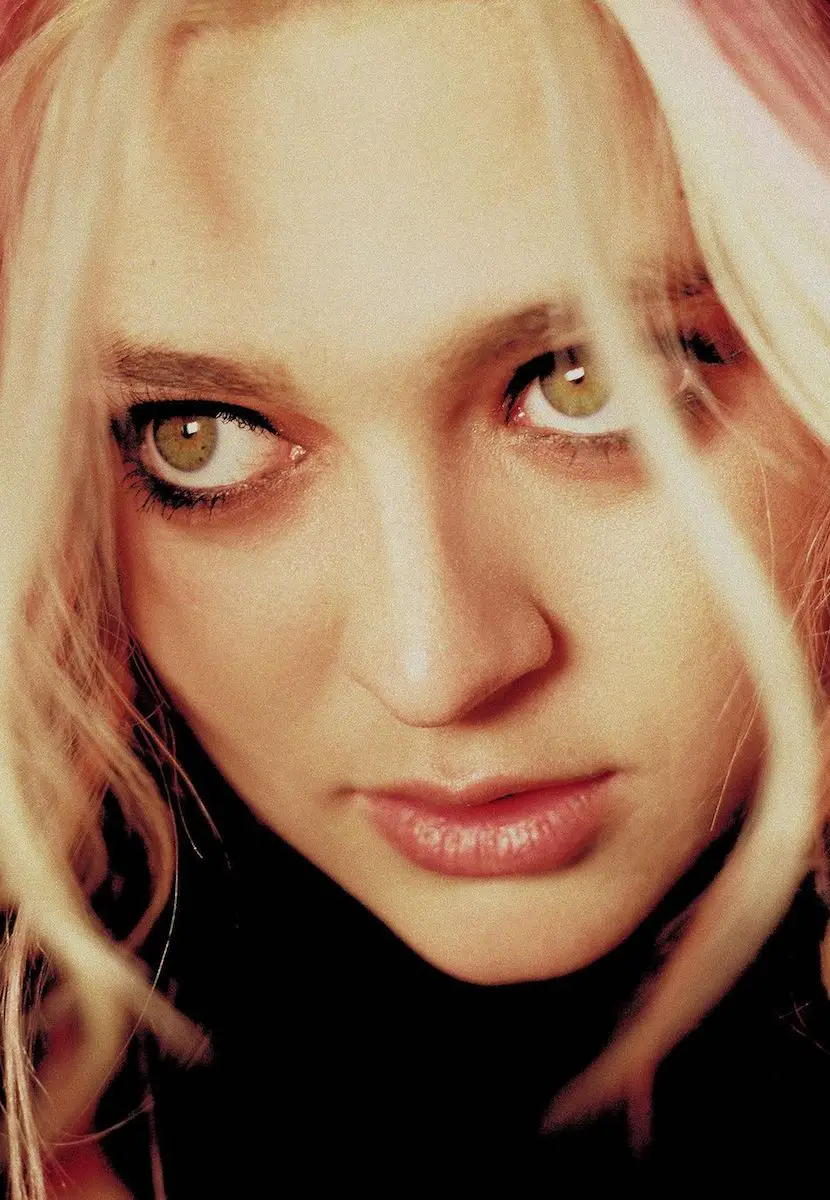
A CONVERSATION WITH CHARLI ADAMS
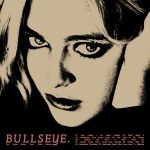
Editor’s Note: This interview originally took place in mid-2021, and was thought to be lost until a copy of the recording was recently discovered on a hard drive. One and a half years later, we are proud to finally be able to share this intimate conversation in its entirety.
Atwood Magazine: It feels like you’ve had a bit of a meteoric rise these past few years, Charli. How did you know when you were ready, and could you ever have seen yourself putting out this album, what is it, two years later?
Charli Adams: I didn’t see myself making this album last year, ’cause we didn’t even know that it would be an album! I was actually just having fun in 2019, before the pandemic, exploring, and just experimenting with different producers and writing more honest songs. And then the pandemic hit, and I went through just a huge transformation and wrote even more honest songs, like the back half of the album. And then we kind of looked at it, and… it’s pretty surreal to capture. It’s basically me unpacking my upbringing, and all kinds of things that I’ve not talked about, so it’s pretty surreal to compile that. It’s like a journal for me, too.
Honesty is always the best policy. Are you the narrator on all your songs? What is your experience like, writing a Charli Adams song?
Charli Adams: I wrote by myself exclusively for a very long time. I still write songs the same way as I did before. I pick up a guitar, and depending on how I’m feeling, I write a chord progression that feels like what I’m feeling, and I usually just kind of improvise and just hit record on my voice memo, and sometimes a whole verse chorus will come out on just stream of consciousness, or sometimes I’ll get a verse… But it’s all usually improvised, and just kind of stream of consciousness – however I’m feeling at the time.
Obviously this album was a very long time in the making. You talked about it being a journal. Can you share a little bit more about the story behind these songs and this album as a whole?
Charli Adams: Yeah. So I think it’s pretty wild to look back in hindsight, ’cause I can look at… It was written before and after a lot of realizations and a lot of changes that I had to implement into my life to be happy. And because I was in a lot of toxic cycles, and I just had a lot of lessons to learn, and there’s still a lot more to learn, but it’s cool to trace it back and look at a song like “Bother With Me,” which was kind of written early on in the record, and… I wrote it by myself in a room I was staying in in LA, and it was one of my lowest points. It’s when I just had no… Clearly, you can tell by the song, I had no self-confidence and no trust in myself, and was just in a really low point. And then you can kind of hear… There’s the empowerment songs like “JOKE’S ON YOU,” from when I went on a date with a sugar daddy on accident and… And that was my first women empowerment song, and then… I believe “Bullseye” was the last one I wrote. No, “”Emo Lullaby”” was, but “Bullseye” was close to the last, and I feel like “Bullseye” and “Bother with Me” are kind of opposite songs. It’s like the submissive sad song, “Bother with Me”, and then “Bullseye” is the “I believe in myself, look at me go, fuck you guys” [chuckle] type song.
In “Bullseye” I go, “Eye on the prize,” where I want to be, and “you can call me Bullseye.” The basis around it was about how, growing up, I was kind of taught that a man would save me, whether it was God or your father or your husband. I grew up in Alabama. It’s touching on the toxicity of that and how I’ve actually been let down a lot of times in those situations, and by men. So it’s when I recognized and sat with myself, and I was like, “I got myself here. I made it here.” And so it’s the empowerment in that.
You shared a bit just now about what Bullseye represents. Can you talk about the process of figuring out that as the album title overall, and how that shapes the record as a whole for you?
Charli Adams: What’s wild is I actually titled what was going to be an EP Bullseye because it was my nickname, my bar nickname, ’cause I love playing darts! It was given to me by Justin Vernon, believe it or not, which is just the funniest thing in the world. A wild, one-off night… My friends called me “Bullseye,” ’cause any chance I got to play darts and beat someone in darts, I live for it. Anyways, so I decided that felt like a really authentic nickname that my friends knew me by, and that people who knew the most authentic version of me called me.
So I decided to name my EP that, and then… I don’t think I knew that it was an album at the time I wrote the song “Bullseye,” and I wrote it in about 15 minutes, sitting in my office chair, and it was stream of consciousness, and it came out so quickly. And I wrote it on acoustic guitar, and I remember, as I wrote it, it felt like it was just there, ready to come out. It was just… It was all there already. And then when I wrote it, I heard exactly how it needed to be produced. I heard it in my head, and I wanted it to sound like what this song is about. And… Yeah, I took it to my friends, and they’d get it immediately, and that was just really, really exciting. And I felt like I had never really acknowledged that emotion that the song is about, and I felt like I captured it exactly how I would have wanted to.
I knew that the EP was going to be about that. I had already written enough songs about it, the kind of accepting of your authentic self and trusting yourself; it was just the biggest theme in my life at the time. That was the meaning and the reason, but there was no song called “Bullseye” yet. It wasn’t my intention, actually. I was writing at stream of consciousness, and I wrote the whole verse, chorus, and then the last line I just sang stream of consciousness was, “The eye on the prize, you can call me Bullseye.” And I remember, you can hear it in the voice memo of me writing it, I remember pausing and being like, “Wait, shit. I just wrote “Bullseye” the song.” [chuckle] It was a cool moment.
You’ve talked about finding your authentic self, accepting your authentic self, and these changes that you had to implement in your life to be happy. Do you mind sharing more about this experience?
Charli Adams: When it comes to who hurt me, really, point blank, period, I did in the long run. I let myself down a lot in life, being a people pleaser and having a savior complex, and obviously these things I didn’t consciously choose, but I am consciously choosing to unlearn them. I grew up with undiagnosed anxiety, very severe, and I took everything very seriously. Religion, I took it much more serious than the people around me growing up, and I kind of thought that I was a superhuman and that I was invincible and could handle anything, and that I had such high levels of empathy and high levels of emotional support to give, unlimited, to people. I hit a point where I realized, in quarantine, when I finally was just by myself and stuck with myself, that I hadn’t paid attention to myself or my inner child or just checking in with myself.
I remember going into therapy for the first time and being like, “What’s a boundary? What do you mean?” So I think Bullseye is just, in real-time, documenting me recognizing that… What my life was beginning to look like and what it was going to look like in the future and what I had to unlearn, and I haven’t fully unlearned these things. It just feels like it documented the realization of it, both before and after, and I think it’s interesting to be able to look and see the difference in what place I was in in my life.
One thing about this music that I love is how inward-focused it is. I can only imagine how hard it can be to unveil these experiences one by one in song. Do these stories continue to resonate with you after? Is each one like its own scar, or once it's out in song, is it a little bit easier to manage it and to see the song as a separate entity from what it represents?
Charli Adams: Wow, I love that question. It’s interesting. I do think I’ve found… I’ve related to songs more than I realized post writing them. Like “Didn’t Make It”, I… That one’s funny, because with “Didn’t Make It”, I actually… The song is about realizing that it didn’t work out with this person and putting it behind you. And I didn’t do that, actually. I released the song, and then, months later, started dating that person again, and then it didn’t work out as it always did. And it was kinda funny, ’cause I was just like, “What the fuck did I expect? The song is… I said it in the song,” [chuckle] and it was like, “Why didn’t I listen to myself?” So there are… There have been times where I relate to the song more afterwards, but…
I do think writing these songs and writing my emotions is so… I know everyone says this, it’s so therapeutic, and it does help me put it behind me. It helps me acknowledge that I’m feeling that way. That’s why I started writing songs in the first place too, because I felt like I had to hold it together when I was young, for people, and it was my outlet to be melodramatic and as dramatic as I wanted to be, and no one could tell me anything, ’cause I’m like, “It’s a song.” [laughs]
Do you always write so inwardly-focused?
Charli Adams: I really admire writers who can go outside of themselves and write from other people’s perspectives; that’s something I wanna explore. I’ve just always naturally been very introspective, ’cause I am painfully self-aware. And so it’s… It just, of course, it bleeds out in my writing, ’cause it’s just kind of who I am as a person, is just… Always aware of myself, always wanting to improve, feeling everything very deeply. And so it just kind of matches my personality, but that’s something I’ve always wanted to explore, is writing from narratives of other perspectives and getting outside of myself; I think it’d be good for me. [laughs]
I love what you said there, “painfully self-aware.” I think that's a good summary for your music!
Charli Adams: Yeah, no, it is, truly.
It sounds like autobiographic writing has been a really great way to get to know who you are, and the person that you're projecting as an artist. Last time we spoke about “Cheer Captain,” you told me that you had filtered yourself into almost nothing, and part of that song was its realization. It seems like much of your album is the opposite of that, of being unapologetic about yourself and your experiences. Do you mind sharing more about this journey of self-censorship and self-expression?
Charli Adams: To be completely honest with you, this is such a huge lesson in my life that I have not fully learned. I think when you are constantly filtering for so many different people, when you’re thinking about, “What is my family back home gonna think? Are people gonna like me? What demographic of people is gonna like me or not like me?” When you’re filtering yourself, you then lose trust in yourself, and you’re like, “Who am I, actually?” The unapologetic attitude is something I have to constantly remind myself to have, and remind myself that I’m human and unapologetic, and that it’s okay to express yourself the way that you are, and that’s something I’m learning right now.
I’m learning the lesson to just show up the best that you can, where you’re at in the moment, and not to be too hard on yourself. It kept me in such a box. It was like, if I couldn’t do it perfect or if I wasn’t gonna please everyone, I might as well not do it. And it kept me from being a doer, and I was a thinker, and I just watched people do, and I watched people be themselves online, and I was so jealous of it. And then I was like, “Well, what’s wrong with me… Why am I not allowed to do that?” And that’s when I realized, I was like, “Oh, I am, ’cause I’m human.” So it’s a regular check-in that you have to have. I just believe that we all should be, because we’re allowed to be.
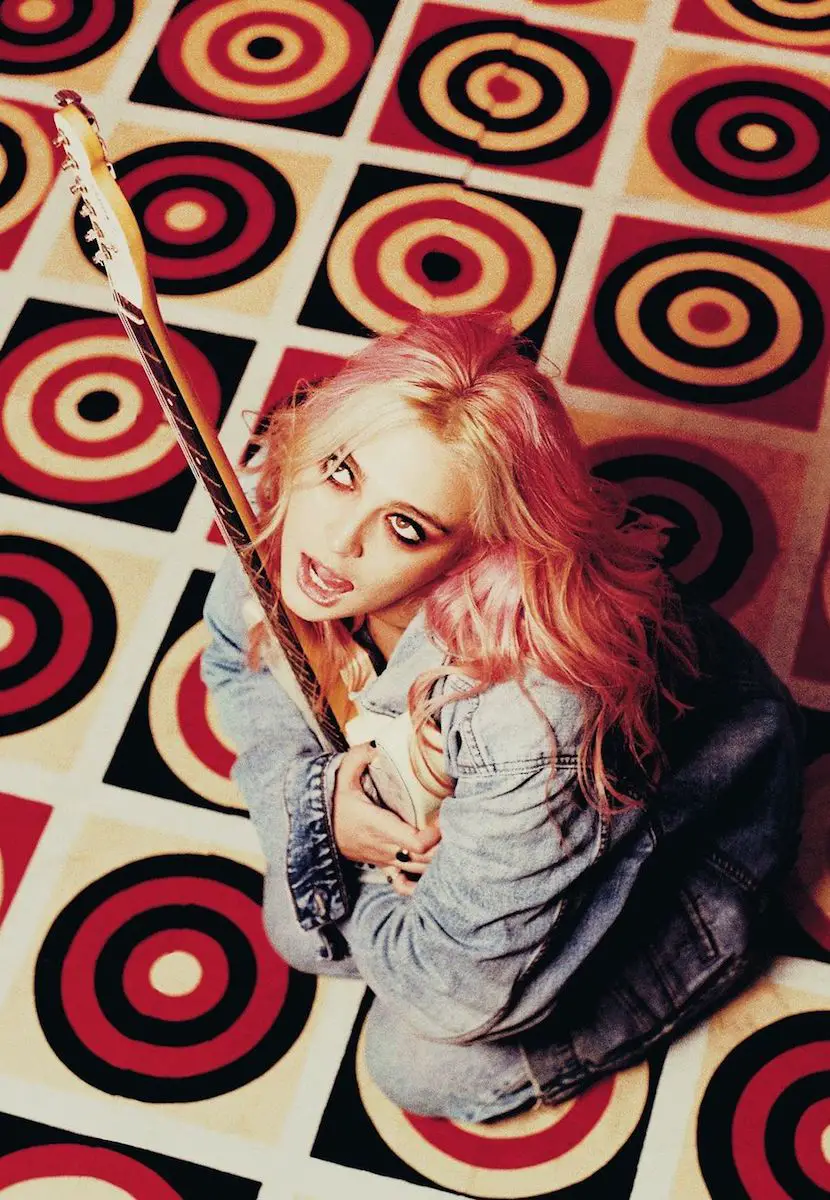
I’m learning the lesson to just show up the best that you can, where you’re at in the moment, and not to be too hard on yourself.
And that particular song just happened to be you really putting it into words and song.
Charli Adams: Yeah, “Cheer Captain” was written over a nine-hour Zoom session, or 12, I honestly don’t even remember… I’d had maybe three therapy sessions at this point in time, and I think… It sounds like I just covered all the things that we had talked about in our session, because it was just a rant about all the ways that my life’s been affected by that one tendency.
It's so interesting that you mentioned you'd only had three therapy sessions at this time. I would have thought that you were a therapy expert.
Charli Adams: That’s the painful self-awareness coming in.
So much of this record is so open about diving into yourself, and you don't necessarily need therapy to do that. This album is definitively therapeutic, if not for us, then certainly for you.
Charli Adams: Thank you. I love that.
Diving in, I want to just take it right from the top. Why do you open with “Emo Lullaby”?
Charli Adams: Actually it was the last song I wrote for the album. I remember I had begged for “Cheer Captain” to get onto the record, ’cause it was written late. And my medium, my sweet medium who I talk to on a fairly regular basis, he told me, he said, “Charli, there’s gonna be a song that comes to you in a dream, and it’s gonna be important for the record.” And I was like, “No, Bud, you’re wrong here because they’re not gonna let me put anything else on this record.” And anyways, two nights later, I was dreaming, and in my dream, Archangel Michael came to me in my bedroom and walked me… It sounds ridiculous, I sound crazy. But yeah, Archangel Michael came into my bedroom and walked me out into my backyard, and we laid there. And he looked at me and was like, “I’ve been here your whole life, and it’s your time. You’re doing amazing, you’ve worked really hard.” This is why this is funny, because I woke up the next day, and I was like, “That was very vivid and strange.” And he’s the angel of healing. So basically it was confirmation that we were healing.
And the song “Emo Lullaby” was written about a depression cycle that I didn’t recognize was a cycle for a long time. So every time I would get really, really depressed, I thought it would be forever. And then I started to recognize that it was kind of on a loop, and it always passes, and those feelings and emotions pass. And so it’s kind of a song that I would want to listen to at night, it’s why it’s called “Emo Lullaby,” to remind yourself that it’s just a cycle, and it’s gonna… It has to run its course. And it’s just kind of my experience with that and escapism. And so opening the record with it made sense to me because it was just kind of starting at the core of it, the… Starting at the saddest, saddest point of… Yeah, of those emotions, the lowest point. Yeah, and I just thought it would be a nice opener and intro to me as a person.
I could talk to the wall, ‘least that’s what they’d tell me
Never liked silence too much, it tends to scare me
Now we’re talking ’bout my parents and my extended family
It’s all spilling out, sorry for oversharing
I’ve been painting the walls and it’s making me dizzy
Haven’t called my friends in a while, wonder if they miss me
Wrote my feelings on the ceiling, find it in the morning
Can’t ignore it now, sorry for oversharing
Sleeping in the backyard
Thought I saw Michael in my dream
Wake up under black stars
It’s just a cycle, go back to sleep
I really love the lyric, “Now I'm talking to somebody that I'm paying once a week I'm relearning how to breathe at the age of 23.” That stuck with me since the very first time I heard this album. Can you talk to me about what this line means to you?
Charli Adams: Yes. I’m a hypochondriac, so… Yeah, I will catch myself. I didn’t realize for a long time, like I said, that I had anxiety. And so I didn’t realize I was having panic attacks. I thought it was normal that people’s hands went numb just throughout the day, and your forearms go numb and your ears go numb, and your breathing is shorter, whatever. I didn’t realize that those were panic attacks for a long time, I just thought that was life. It was just a terrible combination, because I would be very anxious, not be able to breathe and then get anxious that I was dying or something. [laughs]
And then it would make me more anxious. And basically at 23 was the first time I was… I had struggled with anxiety my whole life, and 23 was the first year that I ever had that confirmation and had the diagnosis and had the help and had someone to help me learn techniques to breathe better and relax and handle these things. So it just is kind of talking about how I spent 23 years not understanding that that was a huge crippling factor in my life.
I really like the song as a starter as well, because as you said, it's from a dark place, but it's also from the present. It feels like it's you beginning to look back on everything that made you who you are today, and then through the album we go this way, and then we find our way back to this place at the end with “Bullseye.” I appreciate that full loop that you go through. A lot of the music that we grew up with, it wasn't like that. It wasn't so much about telling a full story as it was a collection of songs, but this one really feels like it's both.
Charli Adams: Absolutely, and that’s something I’ve always wanted. I’m just that person. I want everything to be as dramatic and movie-like as possible, and I want people to listen to it and know how serious it is to me. [chuckle] I care about those things a lot, so I actually really appreciate you noticing that and catching it.
Okay. So… you have a medium.
Charli Adams: I do. [chuckle]
I've never been to a medium, a psychic, or a fortune teller. I don't know the differences, to be honest with you. Can you tell me about the experience of having a medium?
Charli Adams: Yeah. It’s funny to say, “I have a medium,” because he’s actually just a great friend of mine. His name is Thomas Edward, he’s actually pretty… Very famous on TikTok for his mediumship, he’s very, very talented and gifted, but he… It was actually just wild, I felt really drawn to him. I saw him on TikTok, and I was like, “I’m gonna buy a reading from him.” So I bought one, we had a reading. And he was like… He had… He didn’t know anything about me, it was over the phone. Anyways, we just ended up hitting it off, and he absolutely wrecked me, it was wild. No one had heard “Bullseye” – Bullseye was not even announced as my album name, nobody knew about it. And the first thing he said on our call was, “I’m seeing,” and he sends you a picture of the paper that he channels on, and it said, “Eye on the prize, Bullseye,” and he had drawn darts, and he was like, “Why am I getting, ‘Eye on the prize, bullseye?'” and I was like, “What? How’d you know?”
And he actually ended up channeling a family member that, there were just things that there was no way he would ever know. It was pretty unbelievable. And then we just became friends after that. And so all of his mediumship has just been from being friends, he’ll text me and be like, “Hey, I’m feeling this way right now about it, about you and what’s gonna happen.” And you’re like, “Okay,” it’s something to look into. It’s fun. Who knows?
Is it something that you believed in beforehand? Were you always kind of skeptic about that kind of stuff until your experience with him?
Charli Adams: I’ve always been really intuitive myself, so I had dreams that come true since I was really, really young, and I’ve actually had intuitive thoughts that came true the following day, and just… And so I’ve never been… I’ve never acted like I know what it is or what it all means, or anything like that, ’cause we don’t… But I definitely am open, I acknowledge, I know it’s unbelievable, like you can’t really explain it – but yeah, I’ve just never really been a skeptic about anything in general, I’m kind of just an open person.
That's absolutely wonderful. It's probably healthier to be that way.
Charli Adams: Well, yes, there is balance because my friends do tell me often, they’re like, “You have to have caution in life and not just trust everyone that you meet, and not just think everything’s gonna be fun.” And I’m like, “Okay, yeah, I guess.” [laughs] We need to find a middle ground, because I don’t wanna live too critically or be too skeptical of everything.
Life’s a balance. Earlier you talked about “Cheer Captain,” and it sounds like that one was an instant favorite for you. That song just hits all the right nerves in three minutes. Now that it's been out for a little bit, what's your relationship with this song like nowadays?
Charli Adams: Pretty much the same, because I got to listen to it so much, but I really love that song. It’s really sentimental to me just because it is super, super honest, and it was the most honest song I had written at the time. I didn’t think I was writing another song for the album, so I was just extra honest, and then the music ended up being the demo that we did that day with voice memo, guitars and vocals, and so it feels just really raw. I’m proud of myself, looking back, because I just feel like if 16-year-old Charli heard this album and heard that song, she’d be like, “Whoa! Is she not scared?” I just would have never imagined that I’d feel confident to have that out in the world. And now that it’s been out, I’m like, “Okay, shit, what’s next? What do we say next?“
I was nine and talking to God in the shower
I knew he was busy said sorry to bother
but why am I so bad at being pretty like my mother
I wanted to please her
guess I’ve always been a people pleaser pleaser
I tried to be quiet play nice
but I knew I wasn’t doing it right
I cried while to my eyes and then smiled
because they didn’t know I was living a lie
I don’t know when it happened
but I don’t wanna be your cheer captain
“Call out” is sort of the right and the wrong word here – you addressed your family, this boyfriend(s), and your entire community. The general idea of playboys, men in general, and more, in this song, and it doesn't paint them all in a good light.
Charli Adams: No. Well, and the thing is, with my family, families are complex, there are so many complex emotions that go on with families, and there’s a love that you have for them, and I was never… My intention is never to call people out or to make them feel bad. It’s to spotlight my emotion and how it was like when I was young, it was like, “I would kill to be as pretty as my mother, and I want her to think that I’m pretty.” And that wasn’t her making me necessarily feel pretty or not pretty, it was just the way that I looked at the world and wanted acceptance so badly.
I was taken advantage of by these people for sure, many times… Of my kindness and my nature. Especially when it comes to the men, the past men in my life, they’re probably very thankful that that’s all I said. That’s all I’m gonna say.
I think knowing the story that you told me earlier just about saying that you knew it, you found yourself going back to one other guy after you've written this song, it actually makes the song even more powerful and more special to me. I can't put into words exactly how or why, but it kind of means that it's a continuing saga. It's not like it happened and it's over, but it's a continuing experience on a regular basis, which, I appreciate that, that the song lives on.
Charli Adams: It just shows how real that truly was. It was like… ’cause it was written after we had tried so many times. I think that we tried to date five times, and then it would be like he would date someone else or vice versa, or we’d break each other’s heart. It was very Ross and Rachel-esque
It’s funny because I wrote the song… Then we started seeing each other again. Then we didn’t anymore. And I wrote a press release about how I was like, “Oh, I’m so over it. And I really mean it this time,” but didn’t make it. It’s like, “Charli is finally over it! ” And then a month later, we started actually dating for the first time. And so it’s just very funny because then we did break up, obviously because it was destined to happen. It was not meant to be. And so yeah, listening back, I’m just like, “Man [chuckle], she really didn’t learn her lesson,” but now we have. And so now we mean it.
Well, I can't wait for more of the saga in the next album.
Charli Adams: Oh, there’s an entire record to be written, let me tell ya. [laughs]
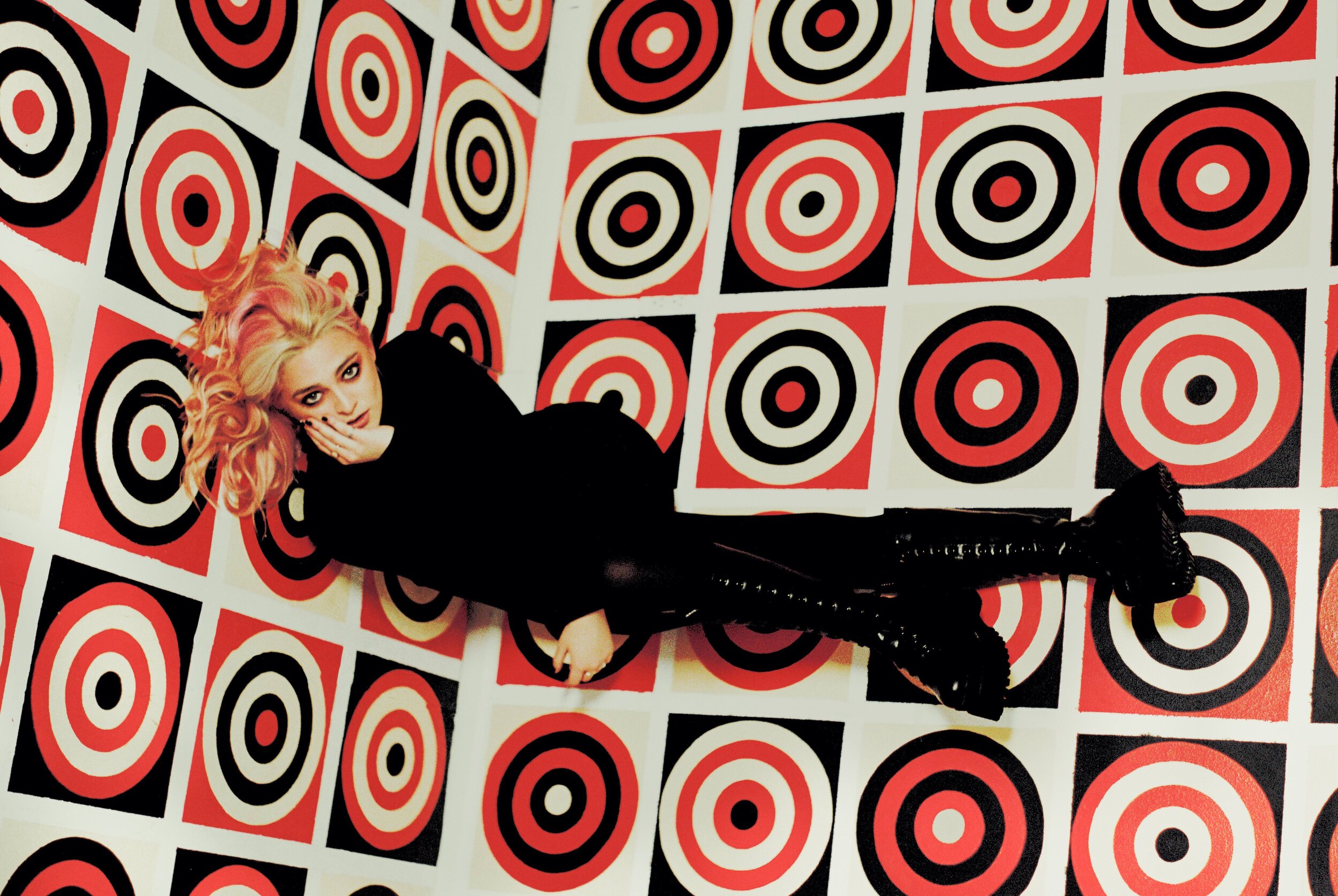
I appreciate your candidness there. You do talk so openly about relationships, follies, insecurity, therapy, anxiety, and isolation on Bullseye. Can you share a bit more about why these themes are so important to you and why for you, they define this debut?
Charli Adams: Probably just because those characteristics have been my essence since I was very, very, very young. It’s just my spirit, and I luckily didn’t allow people to make me jaded in that way because I’ve always been very open. I’ve been very vulnerable with myself and honest and introspective and all of those things. I really just always have been. It’s how I present myself to the world. And as naive as it may be, or risky or whatever it is, I just do. That’s just who I am as a person. And it just makes sense that the first album, my debut album is… Feels like what my personality is. And also, it’s just a combination of me unpacking the first 23 years of my life. It’s a really cool place to start.
I agree. It's a really... “Uncompromising” is the word I would use for it. Has your family had the chance to hear this album? What's their experience been with it?
Charli Adams: Yes. Yeah, there are family members that I don’t know if they’ve heard it and I don’t know what they think. So I’m not 1000% sure, but my mom has and she loves it. Believe it or not, my mom, she loves it. It was the catalyst for a lot of really tough but healing conversations that we’d never had. And I think by the end of it, we had a really beautiful conversation where she was like… It threw people off to be this open and to be saying it to the world. But I think after… It was uncomfortable at first. I think afterwards, she was like, “I think that that’s important. You’re the first one that’s really opened up the conversation and the first one that’s acknowledged it. And that takes courage.” And she was like, “We all can heal in different ways because of it, and also the people who also can relate, it can open up conversations with their family and loved ones.” So it’s been really healing and positive for the most part. My mom gets a lot of texts that are like, “Is she okay? Is Charli okay?” And I’m like, “Guys, I’m better than ever. It’s just you guys don’t talk about your struggles online.” You know what I mean? But yeah, there’s been negative and positive.
But I think overall, the healing and the genuine conversations that can be had after it are really powerful and important. I will say there are some people that have not heard the album that I’m a bit worried about, but I’m gonna keep the same attitude as I did with the other situation. That it’s for the best.
It sounds like a net positive. It sounds like you really have a powerful connection with your family, however complex it may be underneath the surface for you.
Charli Adams: Right, because I do care. These songs wouldn’t exist if I didn’t care, I wouldn’t have been affected by it the way that I was, and I wouldn’t have written these songs as passionately as I did. And so I just hope they realize that. It’s like we do care. Caring sometimes means the uncomfortable for growth purposes.
Transitioning here, I know we talked about a few of these songs so far, you mentioned “Didn't Make It” and we talked about “Bullseye.” Can you talk to me about some of your favorite songs on this album that maybe we haven't mentioned yet?
Charli Adams: Yeah, “JOKES ON YOU” is so fun. I think it’s one of my favorites, because it’s not something I thought I was capable of writing. I had never written a women’s empowerment song, and I’d never written an unapologetic pop song, and so that was very fun for me and liberating. And it was cool, because I had gone on this date with this horrible, horrible, horrible man, and I didn’t realize he was a sugar daddy.
And it was a terrible, terrible night. And I got in the car, and I remember being like… I was very in debt, and I was gonna have to pay for a tour at this time, and I just had… I needed money, and I remember in the car being like, “Hmm, should I?” and then I was like, “No, bitch, that is… This not your thing.” And I was like, “But I’ll write a song about it, and maybe then I’ll make money from that. Karma. I don’t know.” I was like, “How am I gonna write a song about this?” And I did, and it feels very fun and empowering. It’s fun to look back on and know where it came from.
Lousy conversation
Ended up at the bar in the basement
Say you’re impatient
Asking me if I’m yours for the taking
Busy talking ’bout what you’ve got
I swallow my words with another shot
You’re talking ’bout the things that you bought
Like everything’s for sale, but baby, I’m not
It’s obvious that you don’t know me
God knows I’ve got better things to do
If you’re thinking that it’s just that easy
Joke’s on you, I don’t want to
Be the girl that you thought I might be
I told you I’ve got better things to do
If you say, “Sit down and look pretty”
Joke’s on you, I don’t want to
One of my favorite songs is the track that happens just before that, your shortest song on the album, “Get High w/ My Friends.” That song is the highest high.
Charli Adams: So I had a DJ, Sam Rice, and we got some beat tracks, and I was like, “This is very out of my comfort zone, this is not what I normally write to. I don’t know where to start.” I felt like the album was getting very heavy, ’cause it was a very heavy time in my life. And then I realized what takes the edge off for me in my daily life and what is it that brings me joy and makes me… Just the simple happiness that get you through these really heavy moments, and it’s just smoking weed in the kitchen with my best friends really.
I have just the best group of girlfriends around me. Everyone is so uniquely themselves and empowering, and I just love my group of girlfriends. There’s nothing better than getting high and talking about the universe and dancing or whatever with your best friends, especially when you’re in a global pandemic, and those are the only people you can see. It’s your circle, and you’ve gotta escape the realities of the madness that was 2020.
And so that was kind of our escapism, that was how we were able to stay sane. And so I thought it would be the perfect song. I wanted a song that was just very, very… Almost ironically simple, almost comically light-hearted, which is why as an indie artist I wrote, “Call up my bitches, rolling in the kitchen.” I wanted it to be so unapologetically light-hearted and lift the mood from the record so that people could go on the same journey with me, which was getting high with my friends in the middle of self-discovery. [laughs]
I love that. Sometimes the simpler songs are truly the best ones, where they write themselves.
Charli Adams: It’s funny actually, I had just had a random writing session with my roommate Jon, who’s in the band Nightly, and this guy named Hank who is a good friend of mine, and it was just my two guy friends, and I was like, “Guys, I wanna write to this DJ track, and I wanna write about getting high with my bitches. You guys, are you guys down?” And they wrote it with me, so it was really funny, it was just that my two guy friends and I wrote the song about girls’ nights getting stoned in the kitchen. I just loved it, it was very funny to me.
It's definitely a moment of levity on an otherwise heavy album. I think you're right, it helps to lift our spirits and keep us from just dwelling. But even that's not doing justice to the fact that this isn't a one-note album – it really does go up and down and have its moments, no matter which song you're talking about. One of the other things that I think is really impressive about this record is the number of notable artists on it. What was your experience like working with Nightly, Ruston Kelly, and Ali Lacey from Novo Amor?
Charli Adams: Wild. I swear, I think I sound like a crazy witch, I know it, but I swear I manifest what I listen to into my life, because these were all people that I listen to just religiously. I listened to Dying Star, the Ruston record, before the tour that I went on with him, and I actually wrote “Headspace” a few days before I left for tour with him. And then sang it on tour, and he was like, “That’s my favorite.” And so when it came time to recording it, I thought it would be perfect, I was like… Plus I could just hear his voice on it, and I love his voice so much.
He’s one of my favorite male vocalists. So that was really cool. Ruston was very, very invested in the song and really cared about it being right, and that was really cool. And that was very surreal, because he’s one of my favorite songwriters ever, and so to hear him sing my lyrics was very cool to me because I just wouldn’t have thought they would be good enough because I admire his songwriting so much. And so that was very cool.
And then, working with Novo Amor was by far one of the coolest experiences, because I got to go to Wales and I had never been. It was actually wild, yeah, he had messaged, saying like, if you are ever in the UK, you should come… We should work on some stuff, and I had a trip booked in October of that year, and so he was like, “Alright, well, get on a train and come to Wales,”, and I said, “Okay, by myself. Sure.“
And I got off the train in Wales and spent the week there and we worked on a bunch of stuff and just wrote some tunes, and “Seventeen Again” was from that, and so that was a whole experience and trip were very surreal too, because I’m a huge fan of his. He’s so impressive to watch work because he produces mixes and masters everything on his own. And in his studio, I could see all of his instruments were set up… In this one small room, he makes his giant cinematic records and he plays every instrument, and it’s just very impressive to watch. Yeah. And Jon from Nightly is one of my best friends and his was one of the first bands I’d ever collaborated with on their record, and they had me opening for them at Exit/In, and so it was a really cool full circle moment to be able to have him on my record.
What's impressive to me is how cohesive this sounds, despite having so many different people working on the record. What did you do to help ensure this sort of cohesion?
Charli Adams: Did you see me get shocked when you said the word “cohesion”? Because that was kind of my concern with working on this album. When we decided it was gonna be an album, I was like, “But this isn’t how you make albums, and this is gonna be really messy and really confusing,” and when I listen to it, I realized it is somewhat cohesive, as you say, because I think it’s the melody, it’s the core of me writing it and the melodies and the era, I feel like when I write in music it kind of comes in eras of what I’m into at the time, and so I think the cohesion probably comes from my very aggressive voice… Yeah, the commonality is in what I was writing at the time. I’m kind of the only writer for the most part, I do most of writing by myself. I didn’t get a chance to make sure that they were all similar and the producers all had very, very different styles, so I’m very glad you think so, because I’m looking forward to the next album being able to hone in more.
I guess what that really means is that this isn't you working with any one producer to find your sound; this is you finding your sound on your own, and I think you end up owning the album even more because of that lack of singularity.
Charli Adams: I’ve never had that luxury, and I’m really looking forward to the opportunity to do that with the next project. Sometimes I was angry because I would see these people have it – it was like it seemed very easy, and I was like, “This is the 19th producer I’ve worked with this week, and I don’t know him or what’s going on,” and I’m like, “I hope this isn’t shit,” and I’m just really excited to be able to take a step back and really consciously decide what it sounds like, rather than letting each song be it… I think that’s kind of just what I did, I let each song be its own moment. So, yeah, going forward, I’m excited to consciously structure something with time and a go-to person.
I mean, hey, albums get made in all kinds of ways, so that's wonderful.
Charli Adams: Yes. Mine was made like scrambled eggs.
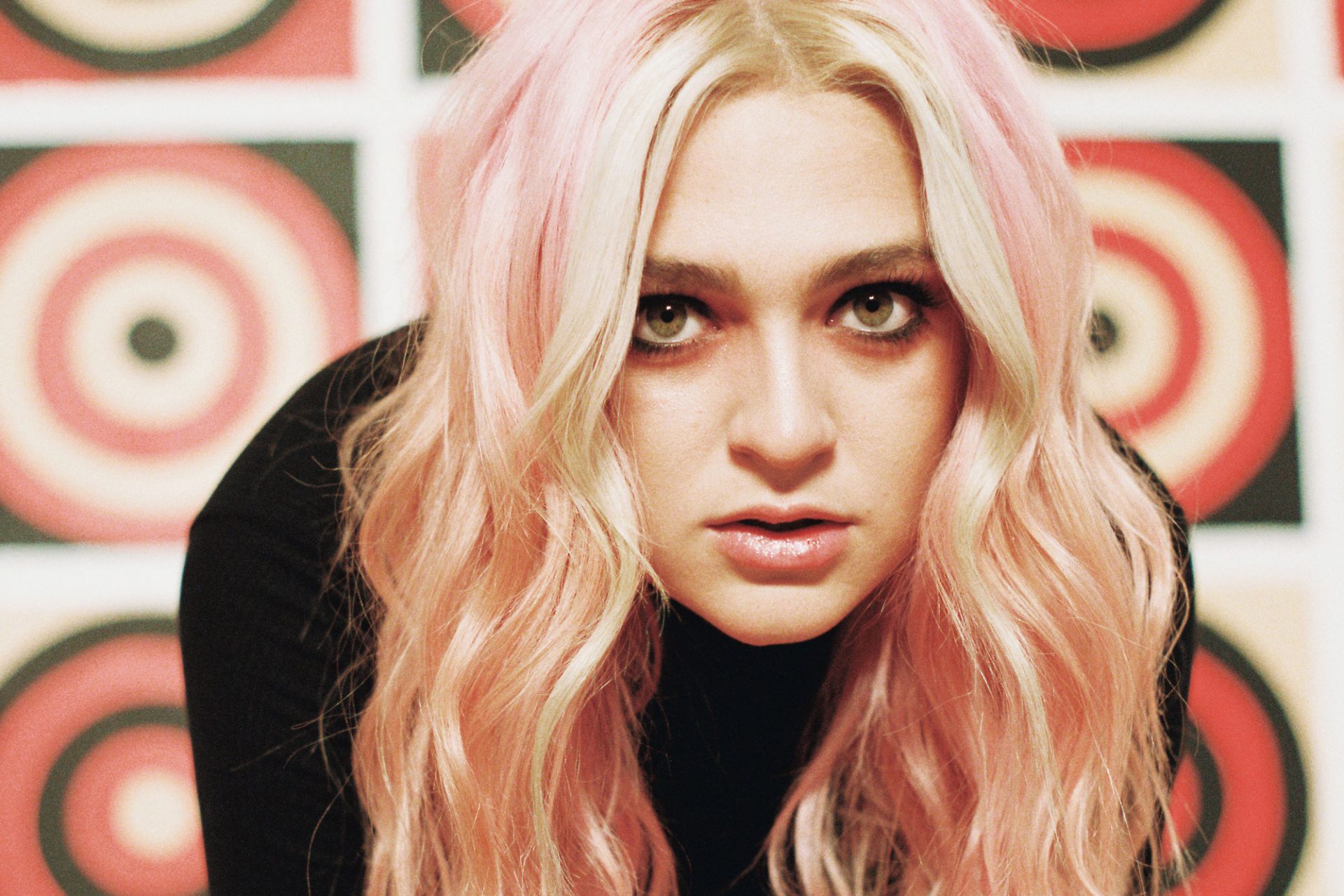
Hah! As a lyrically-forward artist, do you have any favorite lyrics in these songs?
Charli Adams: My favorite song, lyrically, is “Bullseye” generally. That one was complete stream of consciousness, and I remember writing the verse where I say, “I was a kid, picked all the pieces, ended up with stained glass and a portrait of Jesus,” and it just came out and I was like, ’cause I felt it exactly captured what I was feeling at the time, which was like being painfully self-aware at a young age and trying to make sure everything’s okay and pull all the pieces together, and what I was left with was referencing the savior, like God, Jesus was supposed to save me and was supposed to get me through it… And the visual of the stained glass is basically, it’s beautiful, it’s the pieces of you that are beautiful when it’s all pieced together, when it’s all put together, but it’s broken, shattered, multi-colored.
It just felt like a good analogy to me as a person and how you feel like a broken person, but then you just kind of put all the colors together and make what you can, and then when the sun shines through it, it’s beautiful. So I think that’s my favorite line; I’m most proud of that one.
I love how that wound up being one of the last songs you wrote, as well as the title track. I think it's interesting that you saved “Bullseye” for the end. Did you really think through having that there and having that be the final thing a listener hears if they're going from start to finish?
Charli Adams: Yeah. I knew when I wrote the song that it was the closer. I knew it. I knew when it was produced; I felt it. And especially the way it ends, I just always felt like that was the note I wanted it to leave on, and that to be the last thing that people heard. And I could see it; it would be the closer at the show for me. Yeah, it always just felt like the end. It felt like the… Believe it or not, it’s the most empowering song to me, I think, of all the songs. It’s just that final self-recognition moment. And I felt like it captured that emotion so much it’s heartbreaking, while at the same time, it’s very empowered, and like, “Look at me standing.” And I just think that’s a great note to end on. And it just felt… I knew it was, just immediately.
The word “empowerment” inevitably brings me back to thinking about therapy, and as a songwriter myself, songwriting has always been my form of therapy. How do you feel that you've grown through the process of creating this album?
Charli Adams: I don’t even recognize the person before this album was written. If I’m a 2019 Charli, I feel like she would be like, “Damn, she’s cool, but I’m gonna pray for her.” Do you know what I mean? I just feel like there was such an acceptance of self throughout this, and I’m excited for the future because it’s been such a short time. It’s been such a short span of experiencing this kind of liberation and still learning it. I’m excited to not recognize myself in the future, but I feel like I’ve changed a lot in not caring what people think, or if they like me.
I was just so exhausted of that. And from personal connections or the world, whatever it was, I feel more human now. And I feel like I have the theme that I’ve been trying to follow is acceptance, with accepting how you are at that moment and that you are human and you have limits, and that you also have so much to give at the same time and to not hold yourself back from that. And yeah, just, I feel way more accepting of who I am and I feel excited to keep doing that.
What do you hope listeners take away from Bullseye?
Charli Adams: If there are people who relate to these very, very… Which I’m seeing to be true, the fact that there are people that relate to these very specific autobiographical songs is the best feeling in the world, and I hope that they can find healing and some peace of knowing that another human has gone through it or has experienced it. Music has always been the driving healer for me. When I hear a song that I feel completely seen by, it changes things for me and it makes me feel just so comforted. I want people to feel comforted in those experiences. And I also just want people to remember that at the end of the day, they’re the main character of their life and that they’re human. That’s basically everything I’m trying to teach myself, I would tell the world. But we’re all learning as a collective.
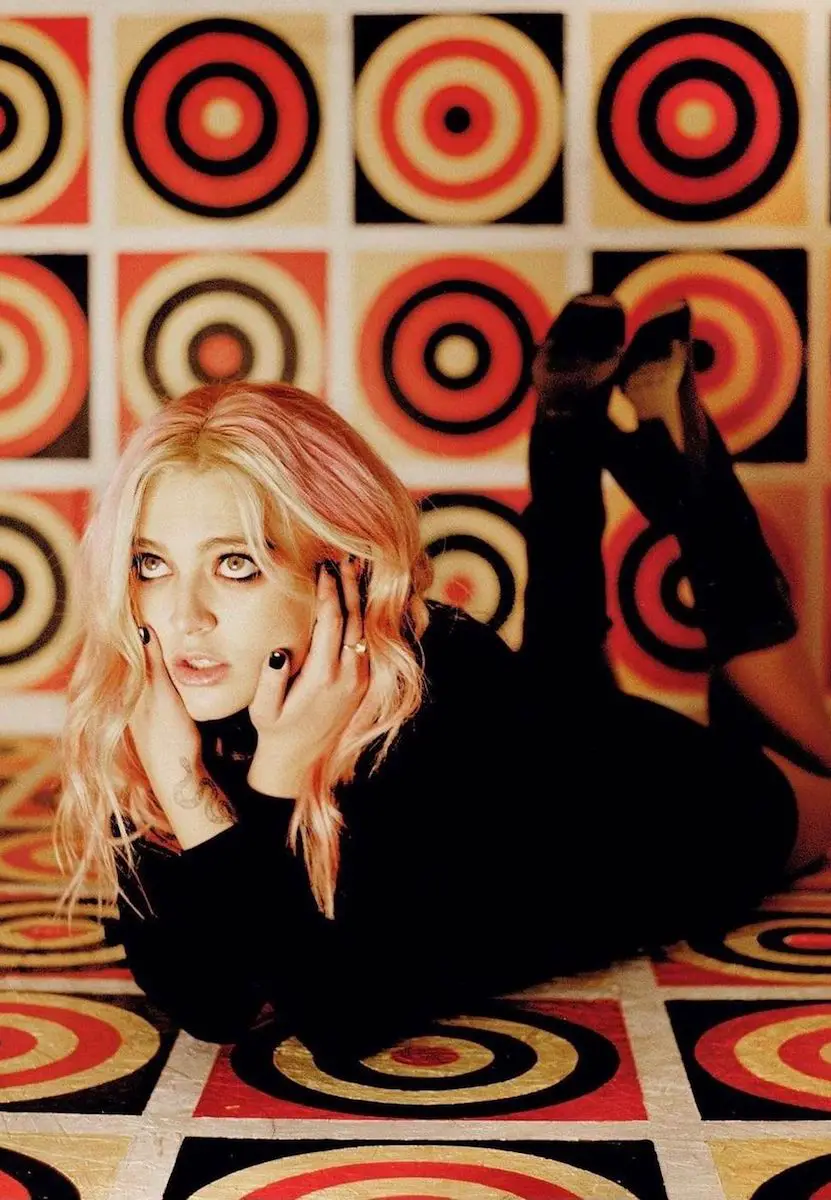
One can feel that from just listening to your lyrics and experiencing the emotion of your songs.
Charli Adams: I’m nervous about the next one, let me tell you. Who knows where we’re going after this?
So you've been writing a lot more music?
Charli Adams: I have been. I never stop. But lately I’ve been starting to shift into… I’ve started to see where the next one might be heading, and I’m very, very excited about it. And you kinda have to, or else you’ll obsess over the current release, if you’re… ‘Cause it’s done, it’s finished, you’ve written it, you can’t change it. And so if I obsess over it, if it’s good enough, or if I could do better, then it’s just useless. So it’s like, “Rather than feeling that way, let’s just try and do better.”
Better isn’t the intention, but try and do more, expand. And so I’ve been kind of, in order to stay present… And I have to see the big picture in order to be present, or else I’ll live in survival mode, if that makes sense. I’ve been having to look forward to the next album, or else I’ll spiral. [laughs]
Do you consider yourself a singer/songwriter, or do you consider yourself some kind of a larger rock, or pop artist? Do any of these labels mean anything?
Charli Adams: I have no idea what I am. I have no idea. I think because I’m influenced by so many diverse, different genres and artists… Artists who are genre-bending are my favorite, so I’ve never really felt like I belonged in any genre, which was a problem in the business. I’ve had many conversations in business meetings where they’re like, “What are you? Pick one. Figure it out.“
So I really don’t know, but I’m really loving the fact that the world is starting to accept genre-bending, and not knowing, and the collaborations, like rap and country. It’s so wild, and it’s cool to see. I think I would consider myself, though, a songwriter. Being an artist is a tool, and it’s an exciting way to share your songs, and it’s cool to personally connect at shows, and to be the narrator of your story, but it’s not necessary for me, I don’t think, to be the narrator, or the voice. It doesn’t… It’s exciting, and it’s a privilege, but I don’t find it necessary, and it’s not… I’ll always be able to be a songwriter, and I’ll always have that if I am unable to be the face, or the voice of it.
It feels like you really gave a big piece of yourself in these songs. I can only imagine how 2019 Charli would deal with that.
Charli Adams: I think I had a bit of an identity crisis about the fact that as an artist, I present very intense. And as a person and as a personality, I present very opposite. I feel like I’m floating all the time. I’ve always been a very bubbly, optimistic person. And I always felt like one of them was being… One of them had to be a lie. One of them had to be fake for the other one to be real. And then I realized that’s just where I channel my intensity, and that’s where I channel my optimism, is how I express myself to friends in the world, is my nature. And then that music is the outlet to be as intense as I wanna be. And that’s probably why it’s less present in my personality, because I get it all out in the song. So yeah, that was a crazy thing to accept and learn about myself, that it was like, “Okay, both can be true at the same time.” It might be confusing for people at first, but no.
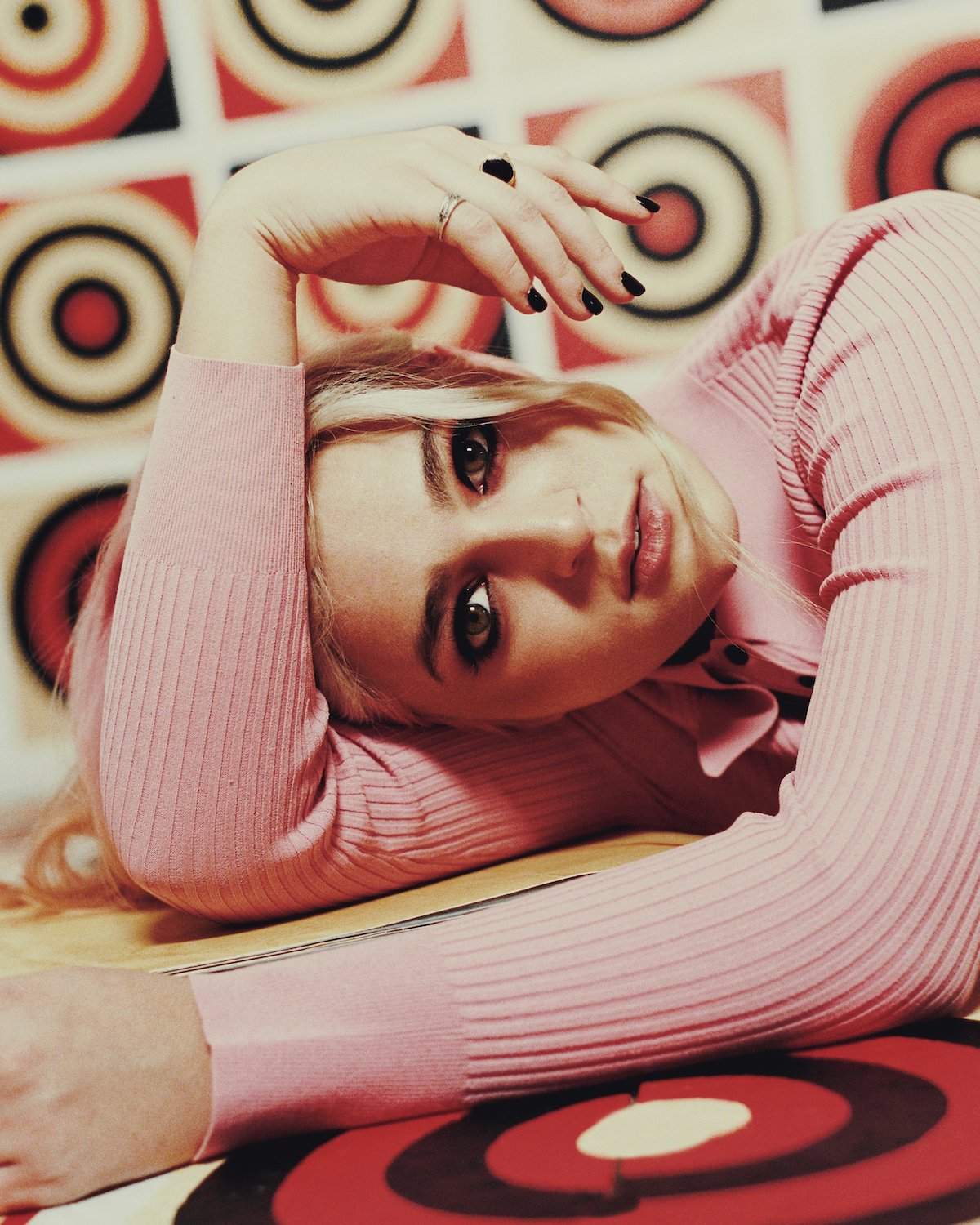
I appreciate that. I think no matter what, there's a ray of empathy that shines through the music. Earlier you shared some of your influences. Can you tell me about some of the background that went into this, and the sounds that you wanted to evoke in Bullseye?
Charli Adams: I wanted each song to be its own moment, I guess in lieu of being able to make the record with one producer and make it all cohesive, I wanted to do what is my favorite thing about music and my favorite aspect of music, when I hear a song that sounds like what it’s talking about. I think that was just my go-to, and so each song has its own reference playlist. But when I was making the record, I was listening to a lot of… Man, it was made over such a long period of time now. And like I said, I’m influenced by it so much, but I think the main influences started with my old influences, where I was very into the big ’80s choruses, big ’80s power ballads, ’80s driven stuff. And now I think with Bullseye it was a more organic… I’ve been listening to a lot of Great Grandpa, a lot of very ’90s influenced stuff. I think it’s generationally making a comeback.
The 1975 was a huge influence for me. I like how especially now, how they’re sonically exploring and they’re genre bending, and then I think that’s really cool. Their latest two records were really influential to me.
I appreciate that they’re one of your influences. What I love about Bullseye is that it's not one tone, it's not one color, and it’s so unapologetically open about its feelings. Who are some artists that you're listening to right now that you would recommend to our readers?
Charli Adams: Great Grandpa, the record Four Arrows is so good. That’s one of the best albums I’ve heard in a long time. Chloe Moriondo is someone I write with actually; I wrote on her latest album, and I’m not gassing myself up for my contribution: That record is so unbelievable, that’s one of the best records I’ve heard in a really long time. She’s killing it. I’ve been diving back in old Gwen Stefani, so it’s like not new, and Claud’s new record is very, very cool!
— —
:: stream/purchase Bullseye here ::
— —
Stream: “Maybe Could Have Loved” – Charli Adams ft. Nightly
— —

Connect to Charli Adams on
Facebook, Twitter, Instagram
Discover new music on Atwood Magazine
? © Luke Rogers
:: Stream Charli Adams ::


